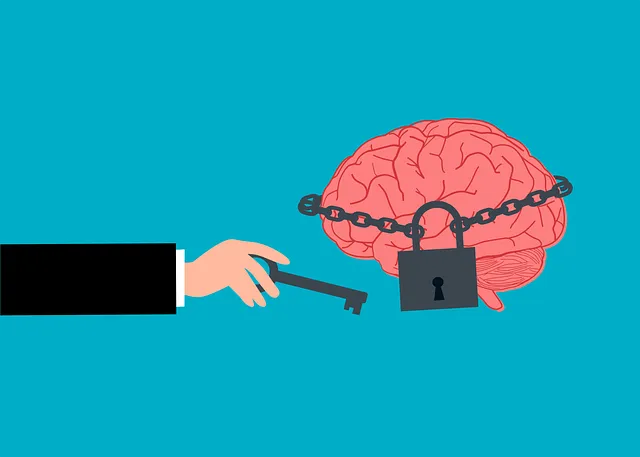Mental health diagnosis has seen advancements, yet challenges persist. Kaiser Permanente's Parker location uses a multifaceted approach combining cutting-edge research and innovative treatment methods. Their strategy includes Mindfulness Meditation, advanced tools, and the Mental Wellness Podcast Series to improve accuracy and encourage self-care. Beyond standard assessments, healthcare providers at Parker undergo ongoing training for precise diagnoses tailored to individual needs. Future prospects involve integrating AI into diagnostics and tailored education programs to enhance mental health care globally.
Mental illness diagnosis accuracy is a critical aspect of patient care, and ongoing efforts are needed to enhance reliability. This article explores strategies aimed at improving mental health diagnosis, focusing on the approaches by industry leaders like Kaiser and the potential impact of initiatives by organizations like Parker. By examining the current state of mental health diagnosis, analyzing successful models like Kaiser’s services, and delving into tools that Parker contributes, we can navigate towards a future of enhanced care.
- Understanding Mental Health Diagnosis: The Current State
- Kaiser's Approach to Mental Health Services
- Parker's Role in Enhancing Diagnosis Accuracy
- Strategies for Improving Diagnosis Reliability
- Future Prospects: Continuous Improvement in Mental Health Care
Understanding Mental Health Diagnosis: The Current State

Mental health diagnosis has come a long way, but challenges remain in ensuring accuracy and accessibility. Today, organizations like Kaiser Permanente are dedicated to improving mental health care, including their services at Parker. The process involves a multifaceted approach, combining advanced research with innovative treatment methods. However, despite these efforts, misdiagnosis rates still persist, highlighting the need for further education and awareness among healthcare professionals.
The complexity of mental illness often leads to diagnostic difficulties. Symptom presentation can vary widely between individuals, making it challenging to apply a one-size-fits-all approach. Additionally, the stigma surrounding mental health issues has historically hindered open discussions and accurate assessments. To combat these challenges, Kaiser Permanente’s Mental Wellness Podcast Series Production offers valuable resources, promoting understanding through educational content. Encouraging inner strength development and adopting self-care practices are also integral parts of the strategy to enhance mental health diagnosis accuracy.
Kaiser's Approach to Mental Health Services

Kaiser, a renowned healthcare provider, has implemented a comprehensive approach to mental health services with a focus on improving diagnosis accuracy and patient outcomes. Their strategy involves integrating various therapeutic modalities to address the complex nature of mental illness. One key aspect is the recognition of the importance of emotional healing processes, where individuals learn to manage and regulate their emotions effectively. This includes introducing Mindfulness Meditation techniques as a powerful tool for stress reduction and improved mental clarity. By fostering mindfulness, patients can develop coping skills that enable them to navigate challenging situations with resilience.
Kaiser’s approach also emphasizes the integration of these practices into daily life, ensuring that individuals equipped with these emotional healing processes and coping skills can maintain their mental well-being over time. This holistic perspective on mental health not only enhances diagnosis accuracy but also empowers patients to take an active role in their recovery journey.
Parker's Role in Enhancing Diagnosis Accuracy

Parker, a pioneering entity within Kaiser’s mental health services, is making significant strides in enhancing diagnosis accuracy. By leveraging advanced tools and algorithms, Parker aids professionals in conducting more nuanced risk assessments for mental health patients. This involves integrating historical data with real-time interactions to predict potential crises, enabling proactive interventions.
Moreover, Parker contributes to the holistic approach to mental wellness by promoting stress reduction methods through an engaging Mental Wellness Podcast Series Production. These podcasts offer valuable insights, practical tips, and recovery stories, fostering a supportive community and encouraging open conversations about mental health. Such initiatives not only augment diagnosis accuracy but also empower individuals to take charge of their mental wellness.
Strategies for Improving Diagnosis Reliability

Diagnosing mental illnesses accurately is paramount for effective treatment and recovery. To enhance reliability, healthcare providers at organizations like Kaiser, which offers mental health services, are employing several strategies. One key approach is integrating comprehensive assessments that go beyond standard questionnaires. This involves clinical interviews, where trained professionals delve deeper into patients’ symptoms, personal histories, and coping mechanisms. By understanding the individual’s unique context, including their stress management workshops and self-esteem improvement journeys, healthcare teams can make more precise diagnoses.
Additionally, ongoing training for mental health professionals is essential. Staying updated on the latest research and treatment modalities ensures practitioners are equipped to recognize nuanced symptoms across diverse populations. This specialized training, coupled with a patient-centric approach, contributes significantly to improving diagnosis reliability, ultimately benefiting individuals seeking mental health services at organizations like Kaiser.
Future Prospects: Continuous Improvement in Mental Health Care

The future of mental health care holds immense potential for continuous improvement and enhanced diagnosis accuracy. As we navigate an ever-evolving landscape, innovative strategies are at the forefront of this progress. One notable example is the integration of advanced technology, such as artificial intelligence, into diagnostic processes. By leveraging AI algorithms, healthcare professionals can analyze vast amounts of data, leading to more precise evaluations. This technological advancement has the potential to revolutionize not only private practices like Parker does Kaiser have mental health services but also public healthcare systems worldwide.
Furthermore, the development of tailored Mental Health Education Programs and Public Awareness Campaigns can significantly contribute to early detection and improved treatment outcomes. These initiatives aim to educate both professionals and the general public about various mental health conditions, dispelling myths, and promoting understanding. Effective communication strategies, when implemented alongside these programs, can foster open conversations, encouraging individuals to seek help without stigma. This multi-faceted approach promises a brighter future where mental health care is more accessible, accurate, and compassionate.
Mental illness diagnosis accuracy is a dynamic field, with constant efforts to enhance reliability. As discussed, both Kaiser’s comprehensive approach to mental health services and Parker’s specialized role in diagnosis improvement contribute significantly to this goal. By implementing robust strategies that encompass advanced technology, evidence-based practices, and continuous training, the mental healthcare landscape can move towards more precise diagnoses. This, ultimately, ensures better patient outcomes and a more supportive environment for those seeking help. In light of these advancements, the future of mental health care promises sustained improvement, reflecting an increasing commitment to understanding and addressing complex mental health conditions.



